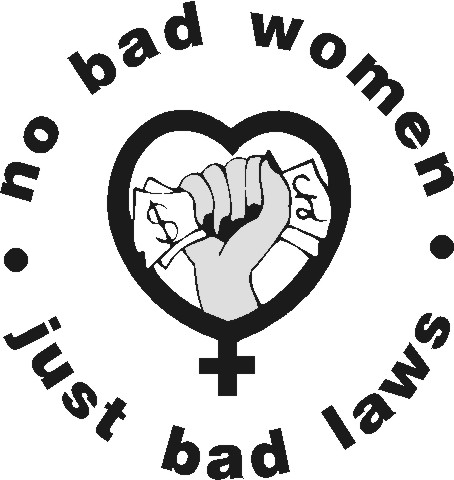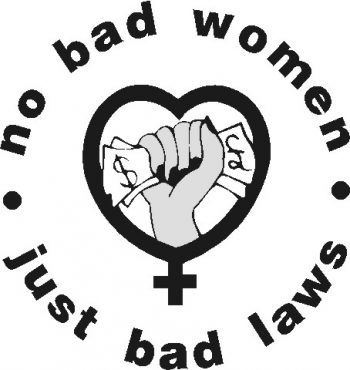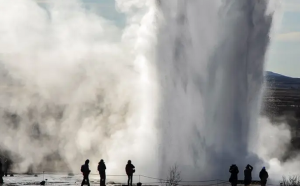Brothel attacks prompt debate whether police priority should be prosecuting sex workers or catching dangerous criminals.
A series of gang attacks on brothels in east London has triggered calls for changes to the prostitution laws after victims who reported knifepoint robberies said they ended up being threatened with prosecution.
A police investigation has been launched as senior Labor and Conservative members of the London assembly and the English Collective of Prostitutes allege that violent crime is being given a lower priority than less serious sex offenses.
The attacks highlight the growing debate over calls for New Zealand’s pioneering decriminalization of sex work to be considered – an approach recently supported by the Association of Chief Police Officers.
What is said by sex workers to be a spate of robberies – involving cash and jewellery – coincides with an increase in police raids on east London addresses being used as brothels before the 2012 London Olympics.
The first address targeted was in Barking, east London, on 6 December. A video showing five men apparently breaking into another house in the area being used by sex workers is also being studied by officers. The women who made the first complaint allege they recognize some of the gang members from the YouTube clip.
In a third attack, at a different address, a woman who worked as a maid at a brothel is alleged to have been raped by the gang. None of the victims there reported the offense for fear of being charged by officers with living off the proceeds of prostitution; the police say they are so far unaware of this incident.
The ECP said changes to the law, in response to fears over the forcible trafficking of foreign sex workers into Britain, have made it more difficult for women to work together in houses for safety.
A letter of complaint sent by Niki Adams, a leading ECP activist who works with Legal Action for Women, to the borough police commander in Barking last month, said the way the investigation into the first incident had been pursued had discouraged “sex workers from reporting attacks”.
The letter continued: “The 6 December attack was at knifepoint and the women felt they had to try and protect themselves. They think the assailants may well be the same people who have robbed them before, who have got away with it, and so have returned and become more violent as they have got bolder.
“Targeting women for prosecution in this way undermines any attempts to catch those who attack and exploit sex workers … We are receiving reports of incidents where women have been attacked and their attackers have told them brazenly that they know women won’t dare go to the police.” Adams believes there may have been as many as 20 attacks in the area over the past two years.
The Metropolitan police confirmed it was aware of the 6 December attack and the YouTube video and is investigating whether the attacks are linked. “We can confirm that we were called to an alleged incident of aggravated burglary at an address in Victoria Road, Barking,” a statement said.
“Patrolling officers arrived at the scene and were quickly accompanied by scene of crime officers and detectives from Barking and Dagenham CID. Detectives also visited the venue on a further occasion to ascertain the circumstances surrounding the incident.
“Unfortunately, those at the address were unwilling to substantiate the allegation or further assist with the investigation despite a number of attempts for them to do so. The case remains under investigation and should any further information come to light it will of course be vigorously pursued.”
The force said “a notice has been served to the registered owner of the venue in Victoria Road under the auspices of section 33a of the Sexual Offenses Act 1956. The notice formally notified the recipient that they were liable to prosecution should the premises in Victoria Road remain in use as a brothel”.
Referring to the YouTube video, the police said: “We are looking to see if the attacks are linked. Officers take any such reports extremely seriously and actively encourage all members of the community, particularly those who may be vulnerable to such incidents, to come forward and contact police.
“Officers at Barking and Dagenham work hard to ensure that the borough remains a safe place for all residents. The welfare of victims remains our primary concern and we acknowledge that some members of the community are more vulnerable and susceptible to crime.
“We strive to encourage and support female victims and to assist us further we are in the process of launching a bespoke multi-agency victim care service. This will see female victims receiving the best possible support and will include fast-track referrals to housing and health professionals as well as Safer Neighborhood reassurance intervention.”
Prostitution itself is not illegal but associated activities – such as kerb crawling, placing advertising cards in phoneboxes and working in premises with more than one person available for paid sex – are outlawed.
Last November Simon Byrne, Acpo’s lead officer on prostitution and sexual exploitation, suggested there was a need for a fresh look at the legal balance. Then deputy chief constable of Greater Manchester, Byrne is in the process of moving to the Met as assistant commissioner. “There is a great amount of academic research available, much of which supports the view that an alternative approach is needed,” he wrote on his official Acpo blog. “An example would be the decriminalization and regulation of brothels in Australia and New Zealand, not an answer to all of the related issues but certainly a solution to some.
“More of those involved in sex work in Australia and New Zealand can now access health services with ease, whilst maintaining more personal security in an emotive area for policing.”
Another proponent of reform is Andrew Boff, a Conservative member of the London assembly. “The law is framed so as to put women [sex workers] into the most vulnerable position,” he said. “The changes brought in by the last government seemed to [be derived from] the view that every single worker in the sex trade was trafficked. “People are not willing to come forward over these attacks. When they report them, the women themselves have had action taken against them. I’m compiling a report on the problem for Boris Johnson.”
Len Duvall, the leader of the Labor group at the London assembly, said: “We need to examine in greater detail information and case studies from those countries that have sought to legalize prostitution, including the model put forward by New Zealand, especially if it provides a degree of protection for sex workers and reduces crimes associated with prostitution.
“Where brothels have not posed a problem to the wider community and there has been no evidence of sex trafficking, I have heard evidence that the police have taken an inconsistent and heavy-handed approach in dealing with sex workers. There is also evidence that crimes against sex workers are being ignored.”
Earlier this month, Sheila Farmer, a sex worker who operated with other women out of shared premises, had charges of brothel-keeping against her dismissed at Croydon crown court. The Crown Prosecution Service said there had been no change in enforcement policy; the unexpected failure of a witness to appear led to the charge being withdrawn. Farmer said she had chosen to work with other women for safety because she had been attacked previously when working alone.
Nigel Richardson, the solicitor who represented her, said he was aware of another case in Surrey where women had reported an attack on their flat from a rival operation. “They were visited by two men who threatened the women and were pouring petrol around the place,” he said.
“My client called the police. Officers initially took the attack very seriously but eventually arrested my client. The men were never brought to book for an assault but my client was prosecuted for running a brothel.”
Tim Barnett, the British-born former New Zealand MP who pushed through his adopted country’s decriminalization legislation in 2003, was in London before Christmas where he briefed Boff and Duvall. “We said let’s make the law the best to minimize harm,” he said at the time. “We set up a review of the legislation. A number of people said the number of sex workers would rise.
“So we reviewed it after five years in 2008. The review didn’t find any increase and there was an improvement in the relationship with the police. Sex workers were using their rights under the legislation to deal with poor-quality brothel owners or clients who had been behaving abusively.”
From: Guardian UK







